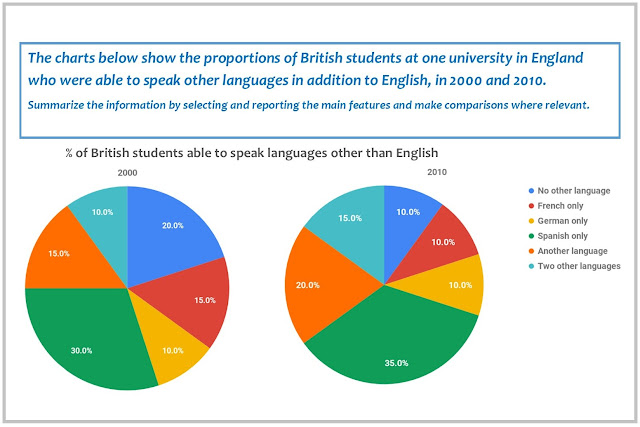Proudly presenting my student’s essay
First, let me introduce the student. His name is Nikita Videnkov, he is a 21-year old engineering student, who has been having one-to-one classes with me for about 3-4 years. His primary purpose is to improve his language skills, but he is also thinking of taking IELTS, so we do IELTS format tasks on a regular basis.
Second, to those of you who aren’t my students I have to explain that my homework worded “write an essay” is usually followed by homework worded “rewrite your essay.” I believe that writing is 90% rewriting and make my students rewrite their work.
 Third, let me give you some context. We were discussing the article called “Phoney war” (New Scientist, 25 January 2017), which deals with end-to-end encryption and its importance in the ‘privacy of communications vs. public security’ debate. As a follow-up task, I came up with the following essay topic for Nikita: “Some people believe everybody must be granted total privacy of online communications by default, while others argue that such privacy undermines public security and authorities should therefore be able to get access to private data. Discuss both these views and give your own opinion.”
Third, let me give you some context. We were discussing the article called “Phoney war” (New Scientist, 25 January 2017), which deals with end-to-end encryption and its importance in the ‘privacy of communications vs. public security’ debate. As a follow-up task, I came up with the following essay topic for Nikita: “Some people believe everybody must be granted total privacy of online communications by default, while others argue that such privacy undermines public security and authorities should therefore be able to get access to private data. Discuss both these views and give your own opinion.”Finally, I am proudly presenting two versions of Nikita’s essay in this post:
1) Version 1 - 'as is,' completely intact; I have highlighted the parts I wanted him to edit.
2) Version 2 - revised based on my comments; I have highlighted the edited parts.
You are now all set to read the essays.
Version 1
Some people claim that total privacy of communications must be provided for every user, while others believe that such freedom compromises public security and private data should be accessible for authorities through backdoors in software. I shall discuss both these views and provide my own opinion.
Naturally, everybody wants to keep their secrets safe. It results in people's desire to use services with encryption, which keep data safe during transmission. Nobody wants their private photos or business ideas to be hijacked and shared to the net where others can use them against owners. Banks also use meticulously developed encryption algorithms to maintain security of people’s assets and transactions.
Nevertheless, total privacy by default may affect public security since terrorists can use encrypted connections to organize attacks. There were several cases, when terrorists used messengers with end-to-end encryption which resulted in many deaths among citizens. Authorities could not prevent it since they didn't have back-doors in messengers' software which could help them to intercept terrorists' data. Those attacks provoked reasonable discussion between authorities on mandating companies to lessen the encryption level and to give the government the access to private data stored in people's devices.
In conclusion, I believe that every person has a right to keep their personal information secured. To fulfill that right government should give IT-companies the permission to encrypt data so users feel confident about their private life. However, the government has to provide public safety, which means that in extremis authorities should be able to crack data of any suspicious person to prevent attacks that can lead to many deaths of innocents.
266 words
Version 2
Some people claim that every user must be guaranteed total privacy of communications, while others believe that such guarantee compromises public security and private data should be accessible to authorities through backdoors in software. I shall discuss both these views and provide my own opinion.
Naturally, everybody wants to keep their personal information safe, which results in people's desire to use services with encryption that keep data hidden from third party. Nobody wants their private photos or business ideas to be hijacked and shared to the net because others can use them against owners. Banks also use meticulously developed encryption algorithms to maintain security of people’s assets and transactions.
Nevertheless, total privacy by default may affect public security since terrorists can use encrypted connections to organize attacks. There were several cases of terrorists using messengers with end-to-end encryption to organize attacks, which caused many deaths among citizens. Authorities could not prevent those since they did not have backdoors in messengers' software which could help them to intercept terrorists' data. Those attacks initiated the discussion between authorities and software companies about mandating the latter to lessen the encryption level and to give the government access to private data stored in people's devices.
In conclusion, every person has the right to keep their personal information secured. To protect that right, the government should give IT-companies the permission to encrypt data so users feel confident about their private life. However, I believe that public safety is more important, which means that in extremis authorities should be able to circumvent the encryption to prevent attacks that can lead to many deaths of innocents.
269 words
Nikita did a great job on both versions, didn’t he?
If you have any questions for him, you can contact him on Facebook or Vkontakte.




Comments
Post a Comment